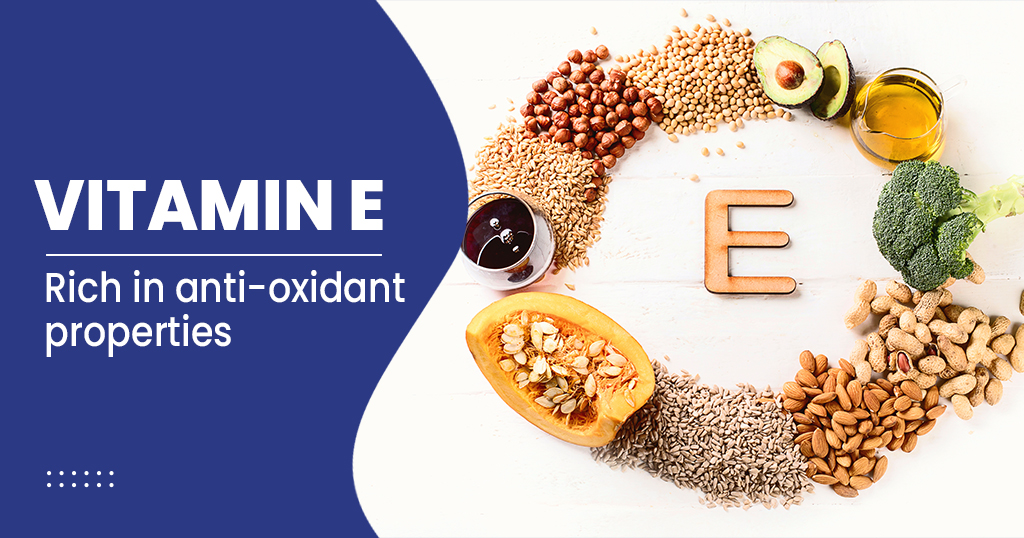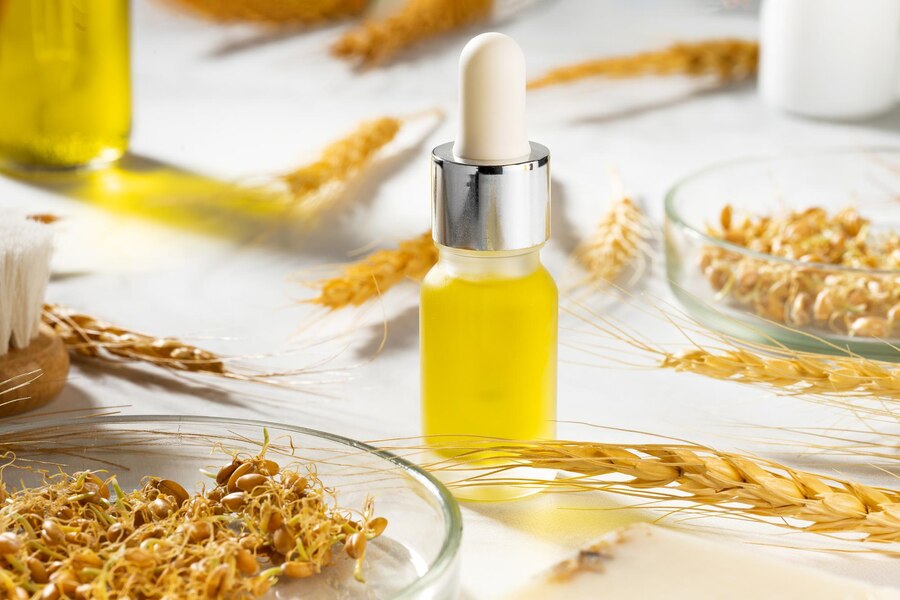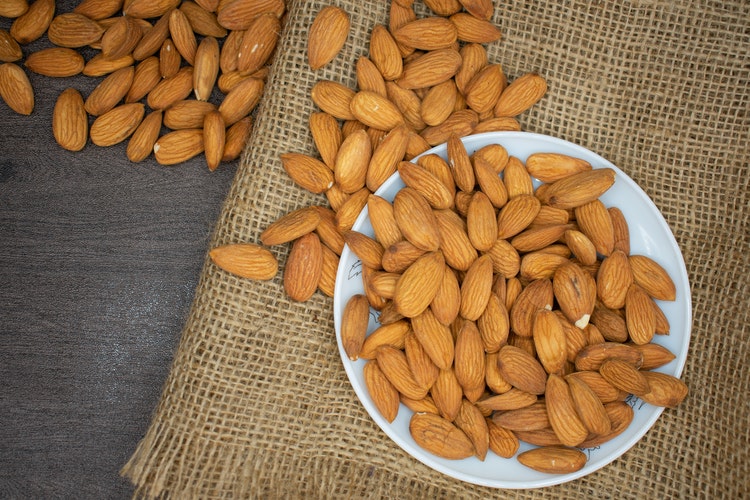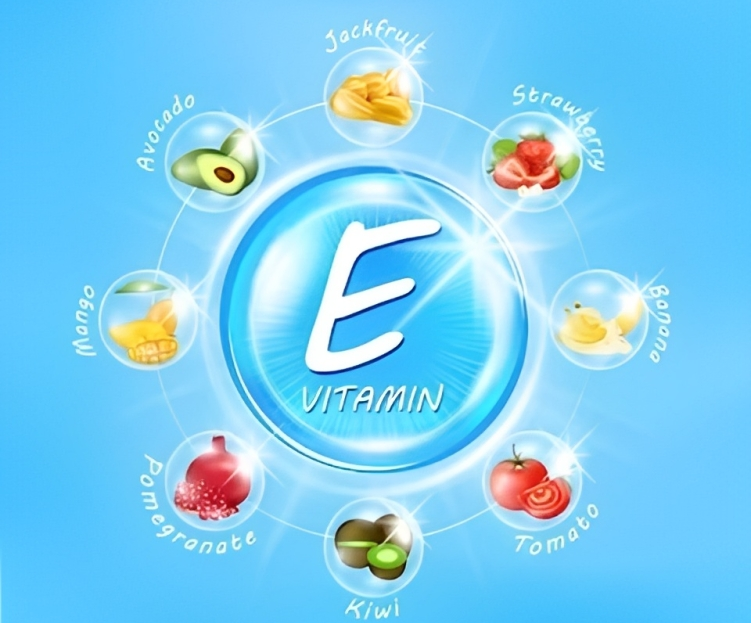Wellhealthorganic.com: VitaminE Health Benefits & Nutritional Sources
- 1 Why Is Vitamin E So Valuable?
- 1.1 Controls Oxidative Stress
- 1.2 Controls Diabetes
- 1.3 It helps Maintain Healthy Skin.
- 1.4 Helps Reduce Osteoart,hritis Pain
- 2 Antioxidant Vitamin E: Where To Get It?
- 2.1 Seed Oil from Wheat Germ
- 2.2 Almonds
- 2.3 Sunflower Seeds
- 2.4 Almonds and Nutella
- 2.5 Spinach
- 3 How To Tell if You’re Low on Vitamin E?
- 3.1 Fruits, Vegetables, And Other Foods To Receive Vitamin E Naturally
- 3.2 The Vitamin E Content of 6 Common Fruits (Per 100 Grams)
- 3.3 The Vitamin E Content of 6 Common Vegetables (Per 100 Grams)
- 3.4 The 6 Highest Vitamin E-Containing Nuts (Per 100 G)
- 3.5 The 6 Animal-Based Highest Vitamin E-Rich Foods (Per 100 Grams)
- 4 Conclusion
Although there are other forms of vitamin E, the human body only uses alpha-tocopherol, even though it is a fat-soluble vitamin. In the 1980s, when researchers realized that free radical damage had a role in the development of artery-clogging atherosclerosis and may also contribute to cancer, vision loss, and other chronic illnesses, antioxidant vitamins like vitamin E gained widespread attention. Vitamin E can both mitigate the formation of free radicals and shield cells from their damaging effects.
Vitamins are a type of micronutrient, which are nutrients necessary in tiny amounts for the body to operate correctly. Vitamins A, B1, B2, B3, B5, B6, B9, B12, C, D, E, and K are essential for human health. It’s a lot of vitamins to keep track of, but the bright side is that if you eat well, you might already get most of them daily. However, a nutritionist may better explain your body’s specific needs regarding the amounts of these vitamins. This piece will discuss Wellhealthorganic.com: VitaminE Health Benefits & Nutritional Sources.
Also Read – Wellhealthorganic.Com: Weight Loss In Monsoon These 5 Monsoon Fruits Can Help You Lose Weight
Why Is Vitamin E So Valuable?

Some of vitamin E’s most essential advantages to health include the following:
Controls Oxidative Stress
An imbalance between antioxidants and free radicals might manifest as oxidative stress symptoms. As an antioxidant, vitamin E defends cells from harm caused by free radicals. This is how it helps keep your body’s inflammation under control.
Controls Diabetes
Elevated oxidative stress levels frequently precede the onset of diabetes. Vitamin E in the diet has been shown to slow the development of this disease.
It helps Maintain Healthy Skin.
Its antioxidant properties make it an excellent skin protector. Vitamin E is often included in beauty products because of its many benefits. As a topical cream, it displays photoreceptive qualities that aid in healing skin lesions.
Helps Reduce Osteoart,hritis Pain
Osteoarthritis, which affects the joints, causes pain and stiffness. Vitamin E protects against osteoarthritis by lowering levels of oxidative stress.
Vitamin E also aids in the following:
- Cataract avoidance
- Staying away from neurodegenerative disorders
- Reducing the likelihood of developing cardiovascular disease
Also Read – Wellhealthorganic.Com: Red Chilli You Should Know About Red Chilli, Uses, Benefits & Side-Effects
Antioxidant Vitamin E: Where To Get It?
Seed Oil from Wheat Germ

One of the most significant dietary sources of vitamin E, with 255 milligrams per 100 grams, wheat germ oil is pressed from the wheat kernel’s germ. However, wheat germ oil is highly spoilable and pricey.
Almonds

Almonds are the most consumed nut globally. They are eaten for their nutritional value and several health advantages. A 100-g serving of almonds provides 25.6 mcg of vitamin E.
Sunflower Seeds

Sunflower seeds are high in healthful monounsaturated and polyunsaturated fats and vitamin E, making them a popular snack food. Sunflower seeds have 35.7 milligrams of vitamin E per 100 grams.
Also Read – Wellhealthorganic.Com: Vitamin-E-Health-Benefits-And-Nutritional-Sources
Almonds and Nutella

Peanuts are legumes despite their widespread misclassification as nuts. They are a great protein source and are enjoyed as snacks and in peanut butter. Per 100 grams, peanuts provide 44% of the recommended daily dose of vitamin E.
Spinach

Spinach, one of the best low-calorie vegetables, is a worldwide favourite among health-conscious people. It may be used in various ways and is a good source of several vitamins and minerals. Compared to other common vegetables, spinach has a high concentration of vitamin E (44 percent of the daily intake per 100 grams).
How To Tell if You’re Low on Vitamin E?
If you’re short on vitamin E, watch out for these symptoms:
- Imperfect vision
- Disorganized physical coordination
- Immune deficiency
- Muscle Weakness
- Feelings of numbness or tingling are symptoms of peripheral neuropathy
Please take note that the following conditions put people at a higher risk of vitamin E deficiency:
- Condition of Crohn’s
- The affliction of CF
- Ataxia cholestasis and severe pancreatitis
Fruits, Vegetables, And Other Foods To Receive Vitamin E Naturally
Now that you know the effects of vitamin E deficiency, include the following foods in your regularlybasis to ensure you get enough of this essential vitamin
The Vitamin E Content of 6 Common Fruits (Per 100 Grams)
| Mamey Sapote | 2.1 mg |
| Avocado | 21 mg |
| Mango | 0.9 mg |
| Kiwifruit | 1.5 mg |
| Apricots | 0.9 mg |
| Cranberries | 2.1 mg |
The Vitamin E Content of 6 Common Vegetables (Per 100 Grams)
| Red Sweet Pepper | 1.6 mg |
| Beet Greens | 1.8 mg |
| Broccoli | 1.5 mg |
| Asparagus | 1.5 mg |
| Raw Collards | 2.3 mg |
| Mustard Greens | 1.8 mg |
The 6 Highest Vitamin E-Containing Nuts (Per 100 G)
| Sunflower Seeds | 35 mg |
| Almonds | 26 mg |
| Pistachios | 2.9 mg |
| Peanuts | 8.3 mg |
| Pecans | 1.4 mg |
| Cashew Nuts | 0.9 mg |
The 6 Animal-Based Highest Vitamin E-Rich Foods (Per 100 Grams)
| Fish Roe | 7.0 mg |
| Snails | 5.0 mg |
| Dried Cod | 2.8 mg |
| Abalone | 4.0 mg |
| Lobster | 1.0 mg |
| Atlantic Salmon | 1.1 mg |
Conclusion
Vitamin E shortage is unusual because the body only requires small amounts of the vitamin and because vitamin E-rich foods are easy to come by. However, those who do not eat enough fat run the risk of vitamin D insufficiency. Damage to the retina, peripheral nerve damage that causes pain and weakness in the hands and legs, and ataxia or lack of movement are all symptoms of vitamin E insufficiency. Contact a doctor if you experience any of these signs and symptoms.

















